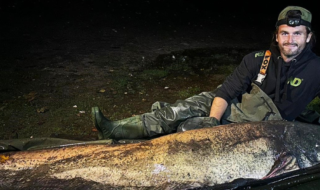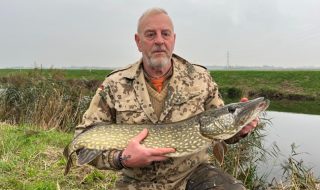A campaigner for universal canoe access, Mr. Andrew Biddulph, who tried to claim £4,000 from an angling club for restricting access to the River Dove, has been ordered by the Court to rewrite his claim or withdraw it and pay Fish Legal’s costs.
This case is a further blow to the incorrect claims of Mr. Biddulph and other campaigners – supported by Canoe England and the British Canoe Union – that there ‘might’ be a general right of navigation on all rivers.
The Burton-on-Trent Mutual Angling Association allows canoeists to use their part of the River Dove under an agreement with the local canoeing club for set times in the season. But Mr Biddulph demanded that the club recognise ‘an ancient right’ to canoe whenever and wherever he wished, or be taken to court.
Local anglers were shocked by the ultimatum but (as it was such an unusual case) Fish Legal agreed to help its member club defend its legal right to fish without the threat of constant disturbance from canoeing.
The canoeist’s arguments came from a University thesis which says that canoeists are entitled to paddle on all rivers in England. The case was an attempt to put this theory into effect by challenging the current law, but also to extract money from the angling club.
Fish Legal made a court application to strike out his claim as an abuse of process and because it provided no reasonable (or legally recognisable) grounds for bringing the claim.
After the application hearing Mr Biddulph chose to withdraw his claim, apparently accepting his case was without any merit.
It is the long accepted position of the Courts, and all respected legal books, that there is no general public right of navigation on non-tidal rivers. Unfortunately, Canoe England and the British Canoe Union create confusion amongst its members by suggesting that there is such a right.
Mark Lloyd, Chief Executive of the Angling Trust and Fish Legal said: “The law about navigation is absolutely clear: apart from on a few identified navigable rivers, there is no right of navigation without permission. The failure of this claim goes to show that such challenges to the law are bound to fail. “The BCU and Canoe England should wake up to this fact and work with us to promote sensible voluntary access agreements.
Many of our members have attempted to draw up agreements with local canoe clubs, only to find that the national canoeing bodies have ordered them not to sign agreements because they do not allow access at all times, or because they would have to accept that they need permission. We call on them to accept the law of the land, respect other people’s property rights and to work with the Angling Trust and its members to increase access for canoes in a sustainable way to avoid further conflicts of this type.”





